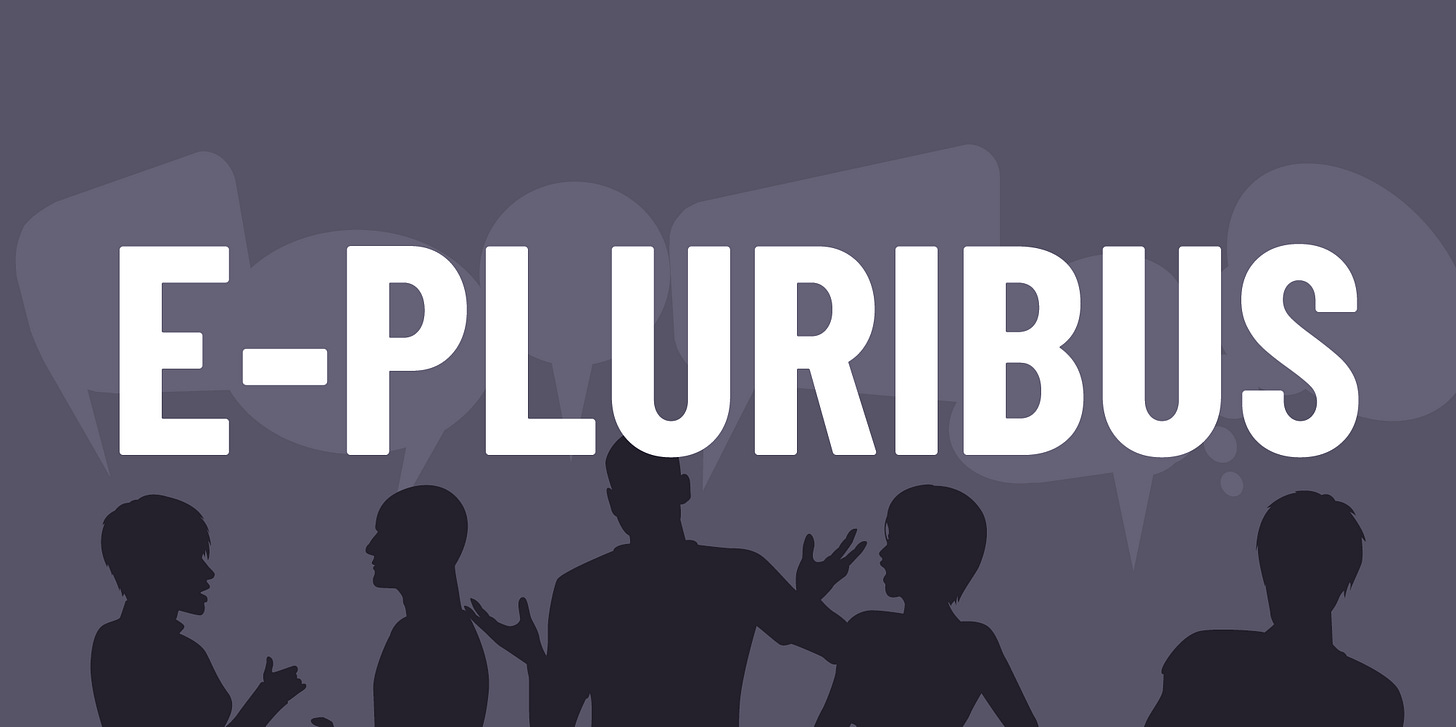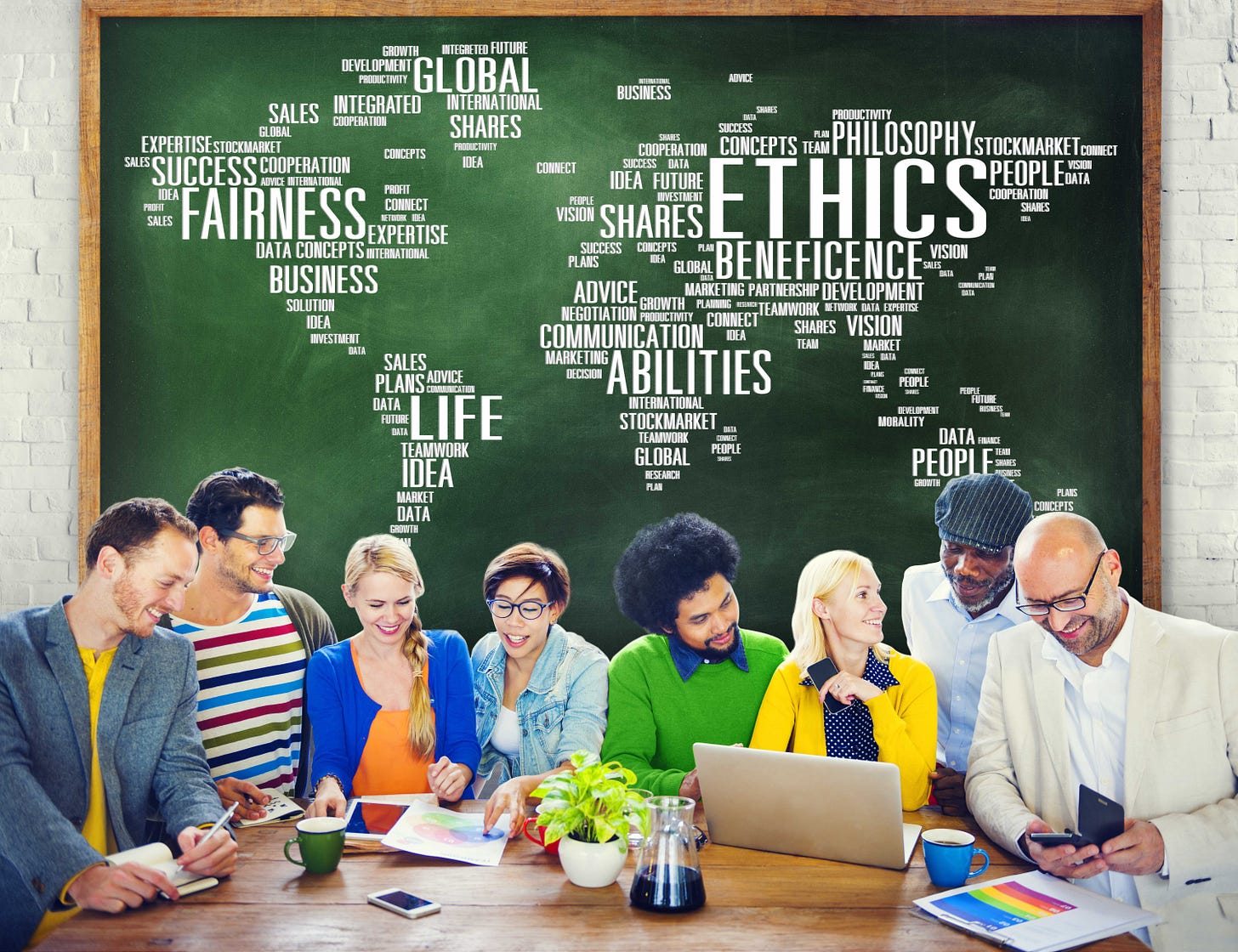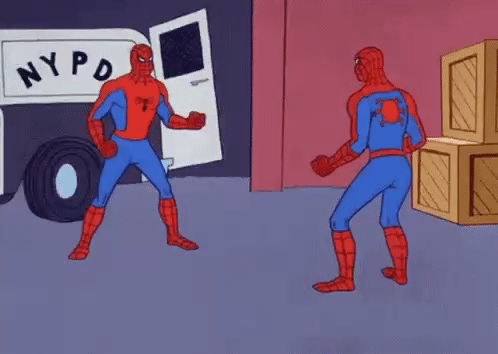E-Pluribus | July 8, 2021
How antiracist education goes too far, increasing dangers in global classrooms, and anonymity as a civil right.
A round up of the latest and best writing and musings on the rise of illiberalism in the public discourse:
Ross Douthat: The Excesses of Antiracist Education
The way Ross Douthat of The New York Times sees it, the movement to confront systemic racism in America is shooting itself in the foot in two areas in particular: the attempted “moral education” of whites, and the treating of all public policy as (pardon the expression) black or white, or more to the point, racist or antiracist. Rather than persuasion, the implementation of these concepts tends to produce alienation that exacerbates the problem rather than leading to resolution.
What’s really inflaming today’s fights, though, is that the structural-racist diagnosis isn’t being offered on its own. Instead it’s yoked to two sweeping theories about how to fight the problem it describes.
First, there is a novel theory of moral education, according to which the best way to deal with systemic inequality is to confront its white beneficiaries with their privileges and encourage them to wrestle with their sins.
Second, there is a Manichaean vision of public policy, in which all policymaking is either racist or antiracist, all racial disparities are the result of racism — and the measurement of any outcome short of perfect “equity” may be a form of structural racism itself.
Read the whole thing.
Sarah McLaughlin: Global classrooms, authoritarianism without borders: The new era of campus speech suppression
The impact of global education and the threats to free speech and academic freedom are not new, but the boom in online video education during the pandemic has raised the stakes and introduced new areas for conflict and danger. Sarah McLaughlin of the Foundation for Individual Rights in Education (FIRE) writes that China and other authoritarian countries are pressuring providers of communications services to police and/or censor content they find objectionable, and too many of those companies are knuckling under.
Like other global businesses, universities are not immune from weighing values and may believe they must choose between expressive commitments and their bottom line — especially if they worry that their access to international students or lucrative partnerships in China could be on the chopping block. The result could take the blatant form of censorship of student events or warnings to outspoken faculty. But the more likely result, and the one much harder to identify or track, is self-censorship. University leadership might choose to avoid speaking invitations to frowned upon figures, like a Hong Kong protest leader or Taiwanese official, or steer away from hosting politically-themed art installations or events.
This is not overcautious theorizing. These issues have already surfaced on American campuses, years before universities’ international students were forced across borders, behind internet surveillance systems, and onto third-party video services. In 2009, North Carolina State University revoked a speaking invitation to the Dalai Lama, its provost admitting: “I don’t want to say we didn’t think about whether there were implications. Of course you do. China is a major trading partner for North Carolina.”
In 2015, a Harvard Law School vice dean disrupted the planning of a campus event coordinated by Chinese dissident and human rights lawyer Teng Biao so that it would not sully then-Harvard President Drew Faust’s trip to China. And in 2017, the China Scholarship Council reportedly interfered with Chinese scholars’ trips to the University of California, San Diego after it hosted the Dalai Lama as a commencement speaker. In recent months, Chinese Student and Scholar Associations (unsuccessfully) attempted to derail events featuring Uyghur rights activists and Hong Kong exile Nathan Law at American campuses.
The uneasy relationship between American universities and oppressive governments is not limited to China. In the past few years, for example, two American universities, Northwestern University and Georgetown University, failed to adequately protect speech that would be commonplace on American campuses but dicey on their Qatar campuses. A spokesperson for Georgetown University in Qatar, which canceled a 2018 debate about God and gender that provoked an online backlash in a country with a blasphemy law, claimed the campus protected free expression but with a caveat: “Faculty members and student groups with access to university benefits may host events on campus that are in accordance with Qatari law.”
Read it all.
Washington Examiner: In a cancel culture, anonymity must be a civil right
Though many in the media portrayed the recent 6-3 Supreme Court decision striking down a donor-disclosure law in California as a “conservative” victory, the editors of the Washington Examiner note that in the current political climate that seeks to punish rather than simply disagree and fund one’s own causes, donors across the political and ideological spectrum will benefit from the ruling.
In Americans For Prosperity v. Bonta, the court struck down California’s law requiring all charities and other nonprofit organizations to disclose their donors. California, in defending its law, was in effect trying to demolish the precedent set in NAACP v. Alabama, in which the court barred Alabama from requiring the NAACP to disclose all of its members.
Freedom of association is a fundamental right protected by the Constitution. Supreme Court jurisprudence holds that if a government wants to regulate it, the government needs a compelling interest, and the regulation needs to be narrowly tailored. California’s law clearly didn’t meet these standards.
Democrats and their media allies portrayed it as a win for “wealthy donors.” It’s an odd characterization for a coalition of charities and nonprofit groups that includes the ACLU and the NAACP.
Read it all here.
Around Twitter
A thread by Kmele Foster, one of David French’s co-authors of a New York Times guest essay that we highlighted yesterday:
Thomas Chatterton Williams on Conor Friedersdorf’s latest in the Atlantic:











